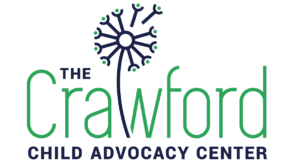If you are an abused child who needs help or a caregiver who suspects child abuse:
- In Colorado, call the Colorado Child Abuse and Neglect Hotline at 1-844-CO-4-KIDS (1-844-264-5437) to report concerns about a child’s safety and well-being. All calls are confidential and will be routed to the county where the child resides.
- If you are outside Colorado, see Child Help USA or call 1-800-422-4453.
We cannot respond directly to cases of child abuse.
Please report suspicions or knowledge of abuse using one of the numbers above or to local law enforcement.
Responding to a Child Who Discloses Abuse: What to do and What NOT do.
DO Get Only the Minimal Facts
It may sound odd, but you don’t want to ask too many questions of a child who has disclosed to you. It’s easy to unknowingly pollute the forensic interview with your questions. If that happens, it will be harder for the prosecutor to convict a perpetrator. Get only enough information for your call to law enforcement or Child Protective Services:
- WHAT happened? Be sure to leave this open-ended. Don’t pry or push them to tell you more than they readily offer.
- WHERE did it happen? Young children may not have a clear answer. If they don’t, or if you don’t understand, let it drop.
- WHEN did it happen? Younger children can’t accurately assess time. Skip this if the child is under 5 and don’t push for an answer.
- WHO was involved? Don’t offer names or roles as possible answers. Leave it open and let them answer however they will.
DO NOT Ask Leading Questions or Try to Interview the Child
Leading questions are ones that suggest an answer. Here are some examples:
“Did So-And-So do this?”
“Did this happen after school?”
“Were you at your friend’s house?”
“After that person did X, did they then do Y?”
Any question that could be answered with, “Yes” or, “No” is a leading question.
Although it’s normal to want to find out as much as possible, especially if the child is a family member or particularly close to you, resist that urge. Our forensic interviewers are specially trained to have these conversations and to help children share as much useful, accurate information as possible. If we can conduct a successful interview, it is much easier to help the victimized child and stop the perpetrator.

